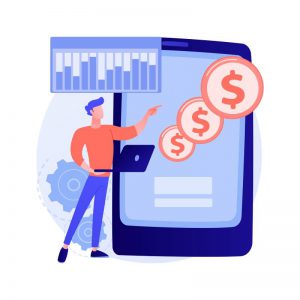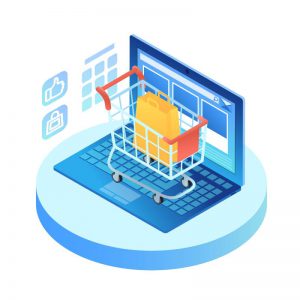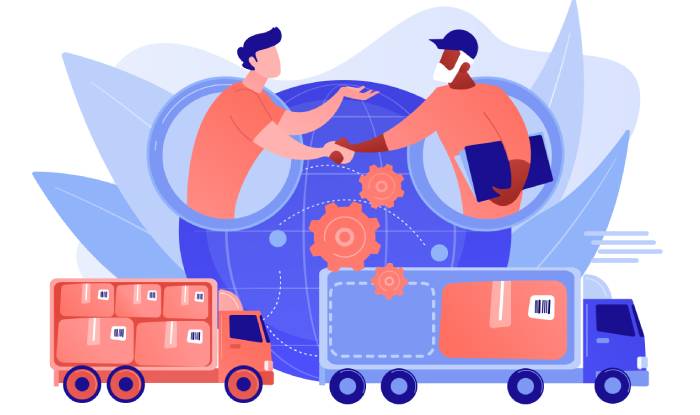The procurement process for enterprises is evolving with the rise of B2B marketplaces. Traditionally, enterprises would go through a lengthy process of finding and vetting suppliers, negotiating prices, and then signing contracts. This process can be time-consuming and expensive, and it can often be difficult to find the right supplier. Today, more and more businesses are turning to B2B marketplaces to find suppliers and get the best deals.
Why now?
One of the biggest catalysts has been the rise of a new generation of procurement professionals. They have grown up buying online for increasingly complex personal needs i.e. B2C. They are therefore open to the idea that buying online also makes sense for business. The more agile organizations have embraced & supported this, and have even created processes to foster smarter procurement through new age tools & marketplaces.
Another driver for this change is the ever-increasing needs of enterprises to procure a wide range of goods & services. The complexity in terms of volume, types, and sources has grown manifold across all industry verticals. A case in point are Marketing services. Legacy Marketing Agencies which have had a foothold into brand teams, can no longer hope to have all the skills in an ever-increasing digital marketing world. Sub-disciplines like social media, content, influencer, eCommerce and many more are becoming more sophisticated & more specialized everyday. The same is true for IT Services.
Enterprises are thus, now looking to simplify their processes. Marketplaces do this by providing access to a range of skills, transparency of pricing, clear performance metrics & supplier ratings.
What are the benefits?
 Based on the experience of the enterprises & professionals who have been at the forefront of the adoption, some of the key benefits that B2B marketplaces offer are:
Based on the experience of the enterprises & professionals who have been at the forefront of the adoption, some of the key benefits that B2B marketplaces offer are:
Increased Efficiency: One of the biggest benefits of using a B2B marketplace is that it can help you increase your efficiency. By eliminating the need to search for required skillsets in a supplier, processes to vet & onboard them into your organization and cutting through archaic & opaque processes for price and contract negotiations, you can save a lot of time.
Reduced Costs: Another big benefit of using a B2B marketplace is that it can help you reduce your costs. By finding suppliers through a marketplace, you can get the best deals on goods and services. The efficiency in this system is brought by connecting the most suitable, specialized & cost effective supplier in direct touch with the procurer. E.g. If you are seeking SAP B1 ERP implementation for a 50 member equipment manufacturing company, you are more likely to find the least cost when you reach a skilled partner who has built scale & capability in that vertical/industry. The chances to find such a vendor are higher in a marketplace than traditional ways of search, discovery & recommendations.
Increased Productivity: A third benefit of using B2B marketplaces is that they can help increase your productivity. By automating the procurement process as well as providing assistance in the same, marketplaces can help you get better ROI. Marketplaces tend to specialize in one thing. They thus create efficiencies – both in processes as well as deliverables.
Improved Quality: A final benefit of using B2B marketplaces is that they can help improve the quality of your procurement process. Marketplaces can help you find the best suppliers with quality products and services. The nature of marketplaces is such that only the most competitive (whether in terms of prices or skills or services) suppliers are able to be successful.
What types of B2B Marketplaces are there?
 There are a number of different types of B2B marketplaces available today. Each has its own unique set of benefits and features. Some focus on specific industries or products, while others offer a more general platform. In addition, some marketplaces are focused on the sale of goods, while others are focused on the sale of services.
There are a number of different types of B2B marketplaces available today. Each has its own unique set of benefits and features. Some focus on specific industries or products, while others offer a more general platform. In addition, some marketplaces are focused on the sale of goods, while others are focused on the sale of services.
Product-Specific Marketplaces: These marketplaces are focused on specific products, and they provide business with a place to find suppliers that specialize in those areas. For categories like Office Supplies, furniture & packaging marketplaces like ThomasNet and GlobalSourcesDirect come to mind
Industry-Specific Marketplaces: Another type of B2B marketplace is an industry-specific marketplace. These marketplaces are focused on specific industries, and they provide businesses with a place to find suppliers that specialize in those industries. There are many such marketplaces now for industries like automotive, pharmaceuticals & more
General-Purpose Marketplaces: Another type of B2B marketplace is a general-purpose marketplace. They provide suppliers for any type of product or service they need. For example, Alibaba or Amazon Business can give you the best deals across a variety of your product needs.
Services-Only Marketplaces: Another type of B2B marketplace is a service-only marketplace. These marketplaces are focused on providing businesses with a place to find suppliers that can provide them with services. For example, if you are looking for an IT service provider, B2B marketplace like Benchkart can help you find the best supplier.
Marketplaces In-Between: Finally, there are some marketplaces that fall somewhere in between the different types of B2B marketplaces discussed above. For example, a B2B marketplace like Shopify could be considered both an industry-specific and product-specific marketplace. It is focused on providing businesses with a place to find suppliers that specialize in ecommerce solutions.
Final Thoughts
For business leaders, it makes sense to evaluate a B2B marketplace today. These marketplaces can help you improve and optimize your entire procurement efficiency.
If you want to explore a B2B marketplace for your digital services needs, across the areas of Marketing, Technology & Creative services, please feel free to contact us at any time on outsource@benchkart.com
To know more about how we help enterprises, click here
